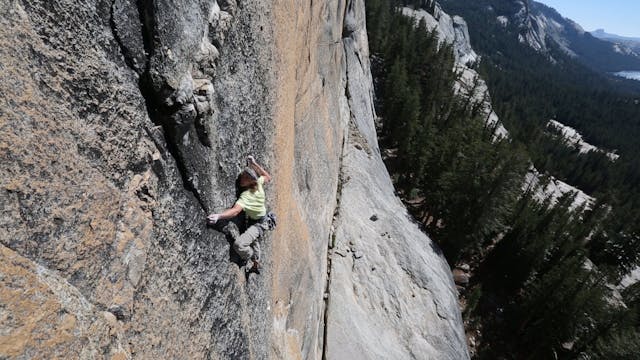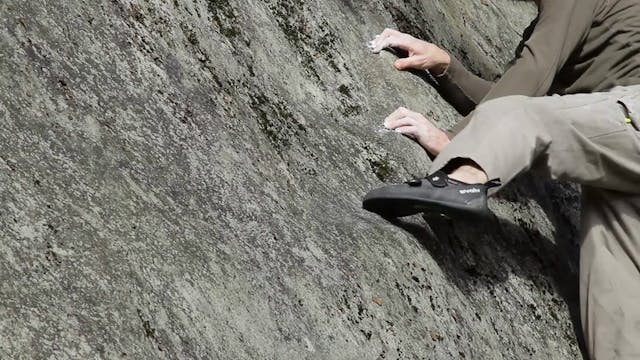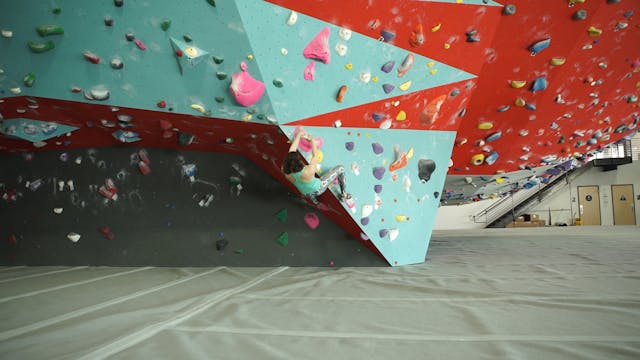Climbing Movement: 8. Using Chalk
Climbing Movement
•
1m 14s
Chalk is a vital component for most climbers.
Without chalk on your hands, the climber is undoubtedly climbing in sub-optimal conditions. Greasy hand sweat impedes the climber’s ability to have optimum friction, in order to gain upward purchase on the rock.
In the early climbing days, outdoor climbers would use “pine tar” or “tree sap” for extra grip. These days, most climbing chalk is made from magnesium carbonate (similar to gymnastics chalk and weightlifting chalk).
Most climbers will “chalk up” heavily before a climb. However, too much chalk has an adverse affect. For more on this, see our video on “Brushing Holds”.
Chalk also offers “psychological protection” for those crux moves. And colorful chalk-bags help distinguish your personal fashion flair!
Remember, a little bit of chalk goes a long way. Climbers should strive to Leave No Trace.
We hope you found this video helpful. Feel free to comment below with questions or thoughts!
Please remember, climbing is inherently dangerous. Climb at your own risk.
Up Next in Climbing Movement
-
Climbing Movement: 9. Edges for Hands
An “edge” typically describes a rock feature, with a flat surface.
Edges vary in length. Longer edges are called “rails”, while shorter ones are proper edges.
Edges also vary in width. Smaller edges are known as “crimps” or “crimpers”. These can be as thin as a dime edge. Large ones are re...
-
Climbing Movement: 10. Edging for Feet
“Edging” is a term that describes precise placement of the inner or outer edge of the climbing shoe.
Edges are small, in-cut, or somewhat positive footholds that lend themselves to accurate foot placements.
Edges are not always horizontal. More difficult routes have edges at different or...
-
Climbing Movement: 11. Hips In
The theory of “Hips In” relates to our “Posturing” and “Process of Movement” videos.
In posturing, the act of “hips in” involves transferring weight from your hands to your feet.
The only time your hips are not in, is when you are looking for your feet. Otherwise, you should almost always...


